Hollywood actor Jason Momoa had to apologize after taking photos and videos while visiting the Sistine Chapel in Vatican City.
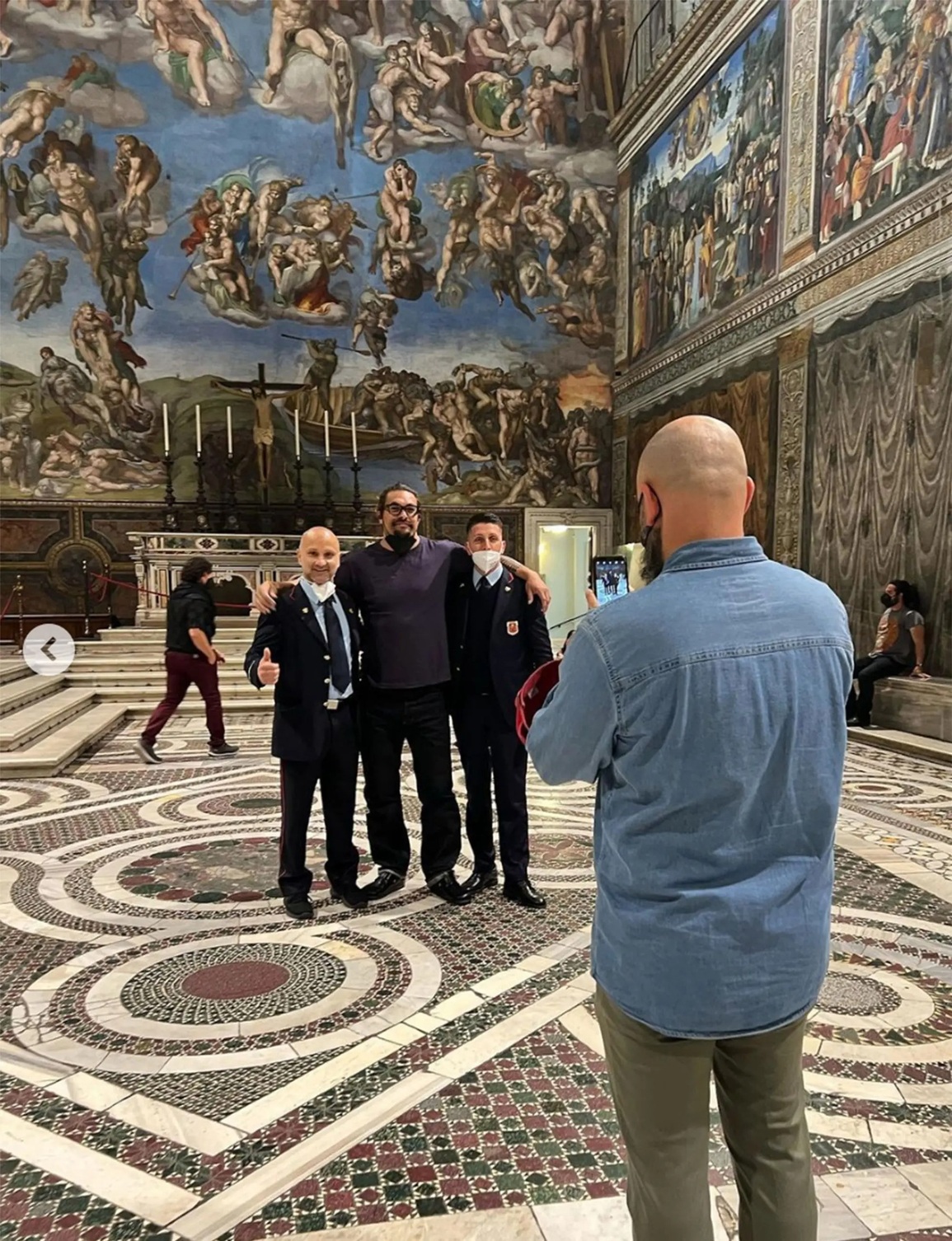
Immediately after Jason Momoa posted the photos on his personal account, many netizens expressed their opposition and said that the 42-year-old actor was treated with bias (Photo: New York Post).
Earlier this week, Hollywood actor Jason Momoa had to apologize after posting some photos taken inside the Sistine Chapel on his personal social network account. The problem is that taking photos and filming is not allowed for tourists visiting this project.
The reason is because the flash light can affect the frescoes that were created by famous artist Michelangelo and many other artists more than 500 years ago.
Immediately after Jason Momoa posted the photos on his personal account, many netizens expressed their opposition and said that the 42-year-old actor was treated favorably.
A netizen commented: “We – normal people – are not allowed to use equipment to take photos or film inside the Sistine Chapel.”
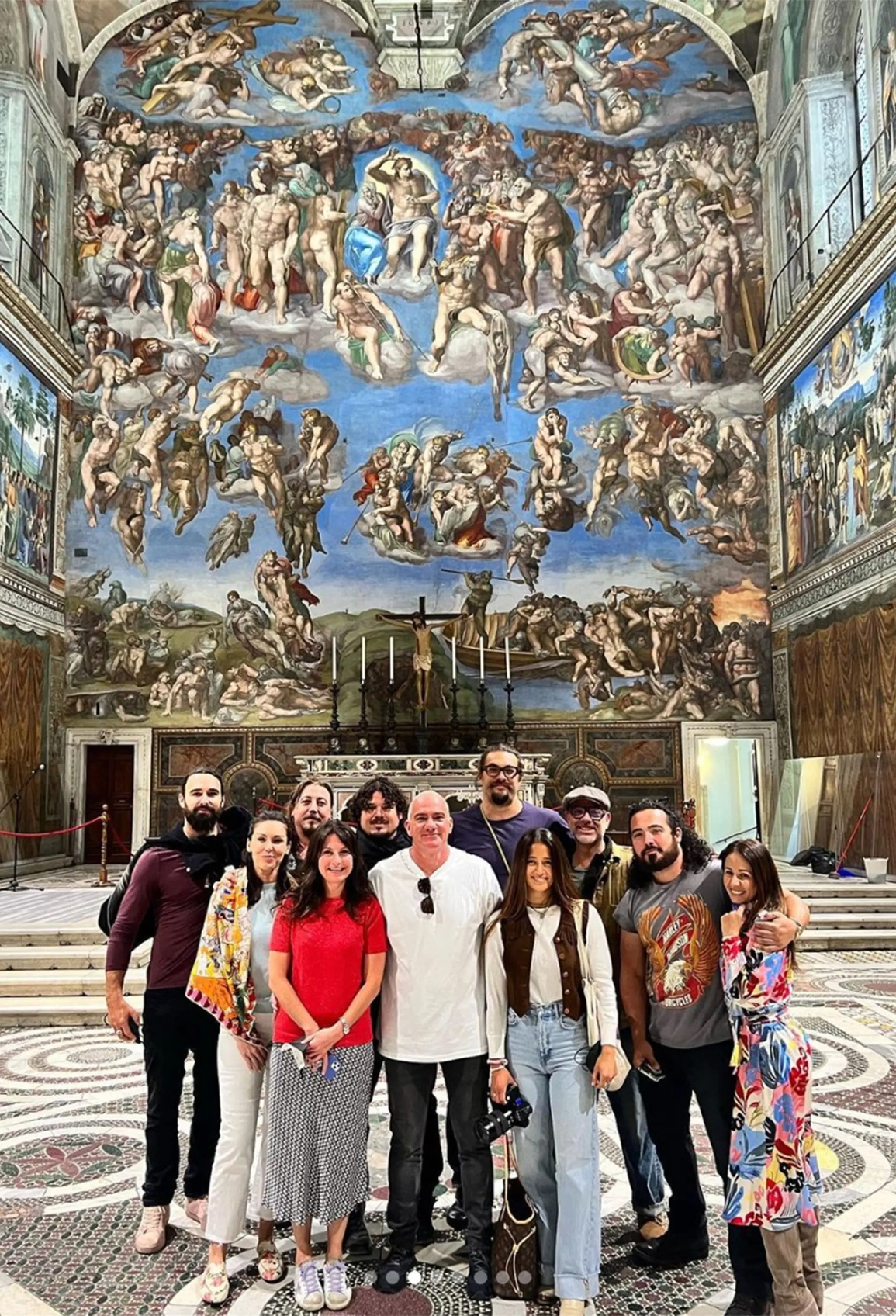
Earlier this week, Hollywood actor Jason Momoa had to apologize after posting some photos taken inside the Sistine Chapel on his personal social network account (Photo: New York Post).
Another netizen wrote: “We are not allowed to take pictures, but of course, celebrities will always have specialties. I have no ill will towards Jason Momoa, I even admire him, but Indeed, this treatment is unfair.”
After the reactions appeared online, Jason Momoa immediately made a video clip apologizing: “I want to send a message to you that if anyone feels I disrespected cultural heritage, then I really do. , I had no such intention.
I really wanted to and then I was able to do one thing, which was to bring my friends and colleagues to the chapel to visit. We only have a few days off to experience and visit. While in the chapel, there were people who wanted to take pictures with me, which was strange.
Because Vatican City has so many artistic wonders, yet they still wanted to take pictures with me, I found it a bit strange, but in the end I accepted. I asked and received consent before taking photos, so at first, I thought this action was acceptable.
I never want to do anything that shows disrespect for a place’s culture . If I accidentally sent that message, I apologize. I contributed to the chapel care fund. I love you guys and I apologize if I offended anyone.”
Currently, Jason Momoa is participating in filming the movie “Fast & Furious 10” in Italy. So, what is it about the Sistine Chapel that makes the flash suddenly become such a “big deal”?
Michelangelo “face down” for 4 years, painfully thought he had a tumor in his neck because of the Sistine Chapel
When assigned to paint a fresco for the ceiling of the Sistine Chapel, Michelangelo had to receive suspicion from the contemporary art world. They murmured in doubt and even chuckled with satisfaction.
To give them no reason to whisper about his abilities, he had no choice but to use the paintbrush to create masterpieces that no one could deny. Now, the frescoes on the ceiling of the Sistine Chapel are considered the pinnacle of Renaissance art.
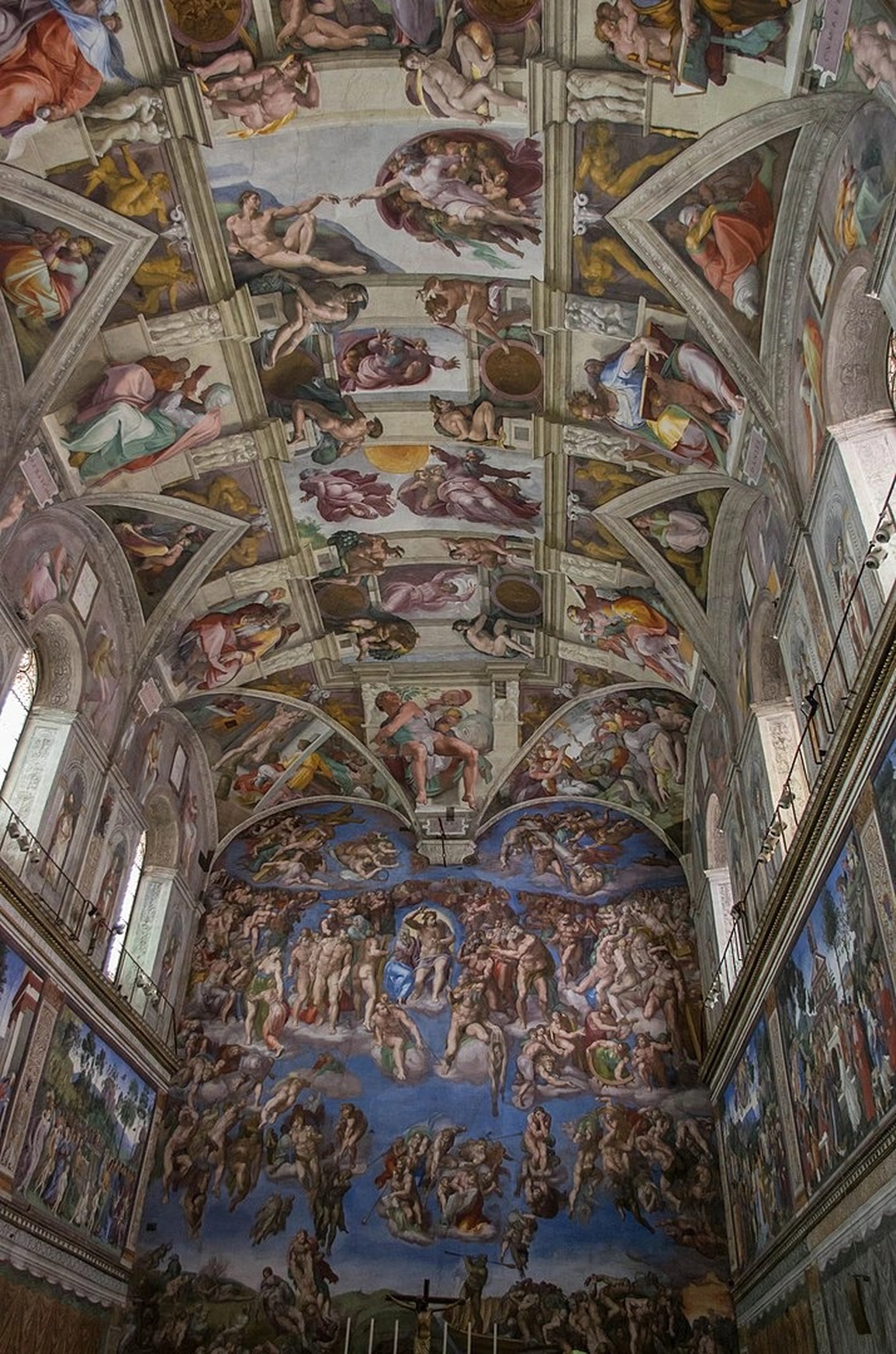
Michelangelo was best known as a sculptor, until Pope Julius II decided to assign him the task of painting a fresco for the ceiling of the Sistine Chapel (Photo: New York Post).
Michelangelo was best known as a sculptor, until Pope Julius II decided to commission him to paint frescoes for the ceiling of the Sistine Chapel. The young man from Florence was only 24 years old when he made the “Pieta” statue depicting the Virgin Mary holding the body of Jesus. Michelangelo’s “David” statue at that time also showed Michelangelo’s talent in depicting the human body.
But contemporaries did not know him as a master painter. The colors and composition of the frescoes on the ceiling of the Sistine Chapel still fascinate posterity. These works are spectacular proof of Michelangelo’s genius painting ability. But before embarking on his mission, Michelangelo encountered countless difficulties…
In the early 16th century, Rome was an epicenter of art. At that time, Michelangelo was mainly known as a sculptor. His painting ability was suspected. He was vilified by his opponents when he was assigned to create a series of frescoes on the ceiling of the chapel. Sistine, even many opponents were eager to see this as a trap that could forever sink Michelangelo’s name.
At that time, the Sistine Chapel compared to other works in Rome was just a simple building and of course a “light” project for “second-rate” artists.
But even with this “second-rate” project, Michelangelo’s opponents in the art field at that time still felt he was not worthy of the assignment.
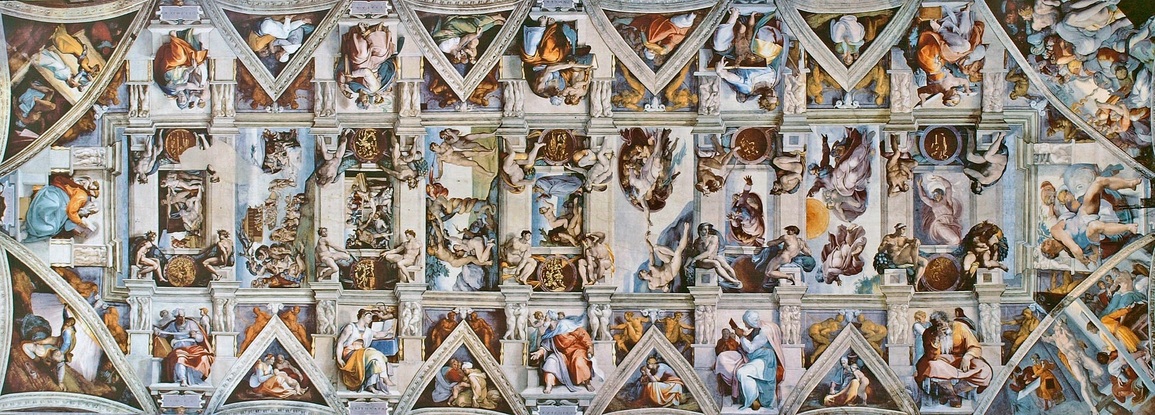
When assigned to paint a fresco for the ceiling of the Sistine Chapel, Michelangelo had to receive suspicion from the contemporary art world. They murmured in doubt and even chuckled with satisfaction (Photo: New York Post).
Public objections to Michelangelo being assigned to undertake the project clearly pointed out that Michelangelo had only had a cursory education in frescoes at the age of 13. Michelangelo actually did not have any fresco works that were recognized by the profession for his ability.
Furthermore, even Michelangelo himself once talked about his weaknesses in painting, and he himself admitted that his real talent was for sculpture, not painting.
At that time, the frescoes on the vertical walls of the Sistine Chapel were done by other artists. Michelangelo was commissioned to fresco the entire ceiling of the chapel, a massive structure spread out over more than 500 square meters. This is an overwhelming job for both talented and experienced artists with many difficulties and challenges.
This work will last for 4 years, starting in 1508. The frescoes done by Michelangelo on the ceiling of the Sistine Chapel depict what is told in the Bible, about the creation of heaven, earth, water, light, darkness, humanity, about the story of Adam and Eve in the Garden of Eden, about the great flood…
Challenges
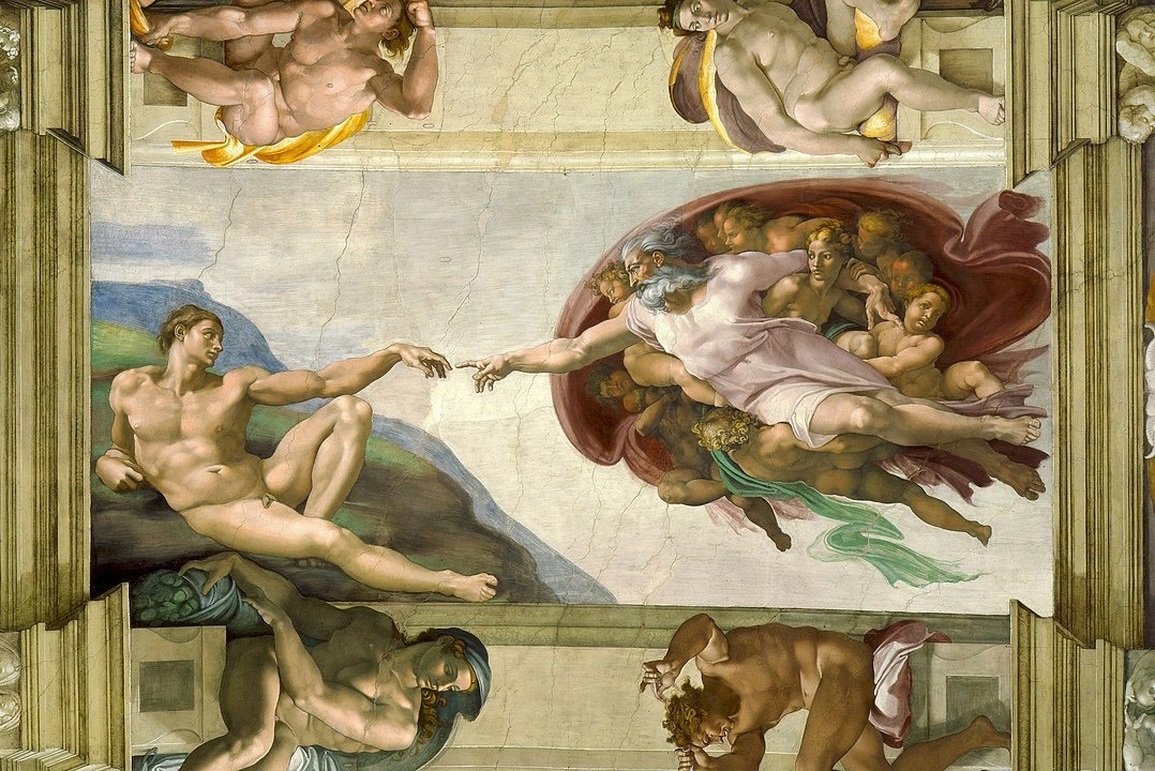
Depicting the specification “The Creation of Adam” (Photo: New York Post).
Problems arose during Michelangelo’s work on the frescoes. He paints the colors directly on the damp plaster, that way the colors will really penetrate deeply and firmly, but this requires the performer to be precise in every move, there is no room for mistakes and no can be repaired.
Time was also a challenge for Michelangelo. He had to take advantage of the sunlight while there was enough sunlight to work tirelessly without stopping, sitting on a scaffolding and drawing with his head tilted back for 12 hours a day. . At the end of a working day, he is always tired.
During the process of creating this series of frescoes, Michelangelo worked with a sense of urgency. He hoped he would quickly complete the task because creating a series of frescoes on the chapel ceiling was very strenuous. His body is always tired after a day of work, especially his neck is always sore because he always has to work in a tilted head position for up to 12 hours a day.
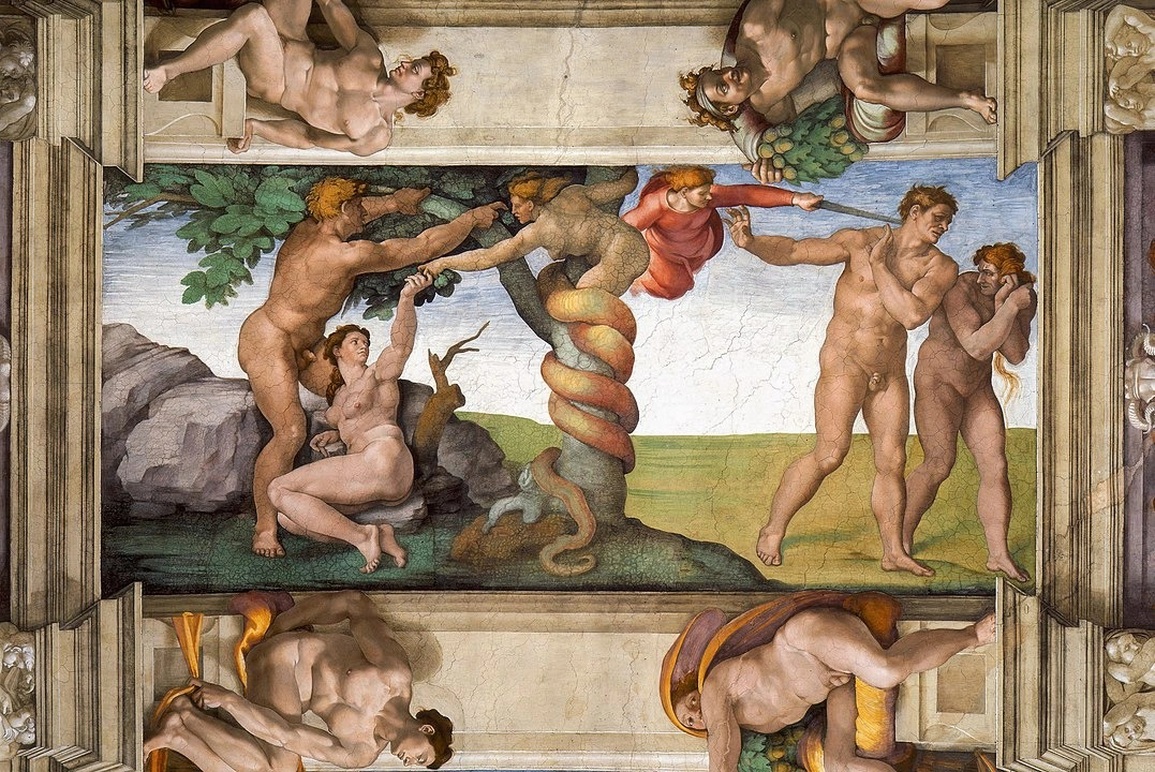
Depicting the specification “The fall caused Adam and Eve to be kicked out of heaven” (Photo: New York Post).
In a letter written in 1509 to his friend Giovanni da Pistoia, Michelangelo complained: “I feel like I have grown a tumor on my neck because of this strenuous work.”
Michelangelo had to work diligently, racing against time, from the moment the sun rose until the light was no longer enough for him to draw accurately as he wanted. Every day, he sat and worked on a scaffolding. The height was made by him himself.
Judgments
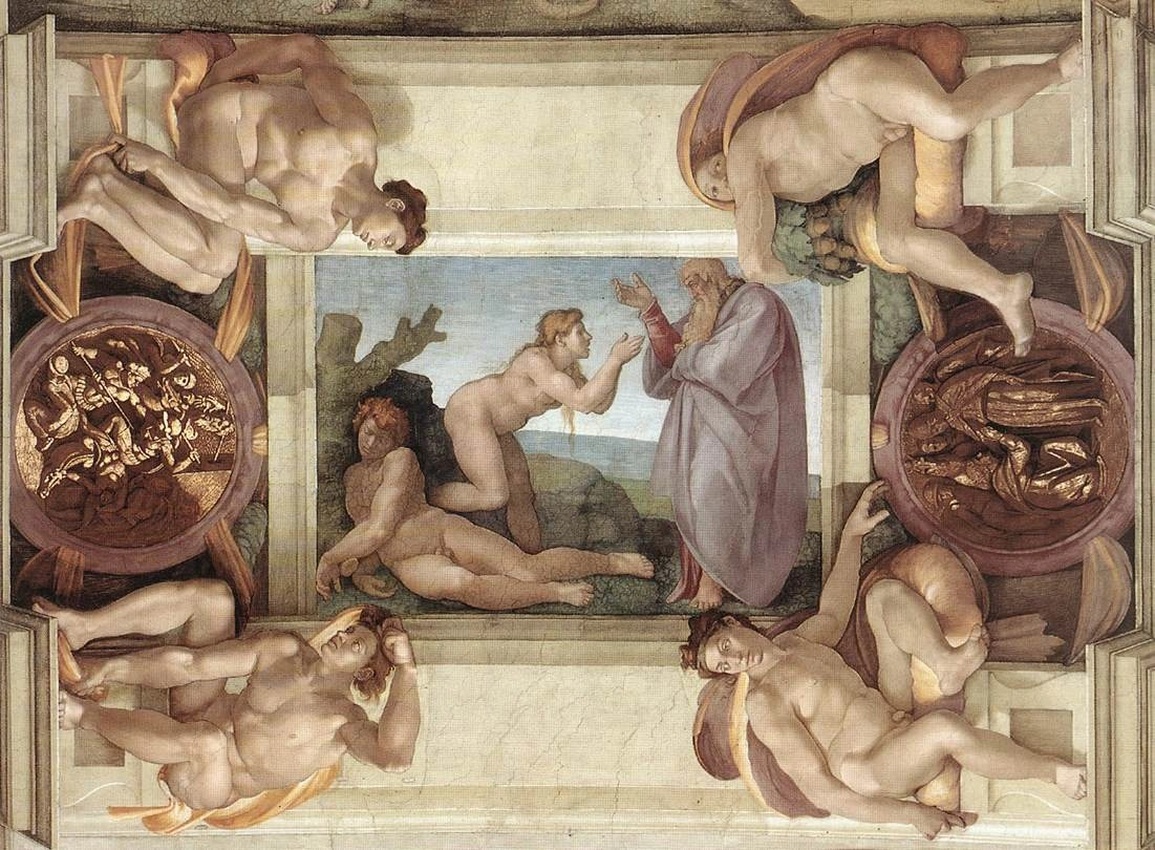
Depicting the specification “The Creation of Eva” (Photo: New York Post).
Immediately after Michelangelo passed away at the age of 88 in 1564, artist Daniele da Volterra was the first person assigned to edit the works with nude elements appearing inside the Sistine Chapel, drawing the leaves, layers of fabric have been made over the original work.
Finally, in the 1980s and 1990s, an important restoration was carried out on the frescoes in the Sistine Chapel, covering the colored patches and “delicate” leaves by experts. , so that the realistic layers of color and vivid details that Michelangelo once created can be revealed again.
Michelangelo’s masterful depictions of the human body are also considered more worthy. Until today, the frescoes of the Sistine Chapel still have great appeal to the public. Standing in front of these fresco works, viewers are always overwhelmed by the beauty and depth of the work.
The frescoes on the ceiling of the Sistine Chapel are testament to Michelangelo’s two genius artistic abilities – painting and sculpture, which are also considered the pinnacle of Renaissance painting.




